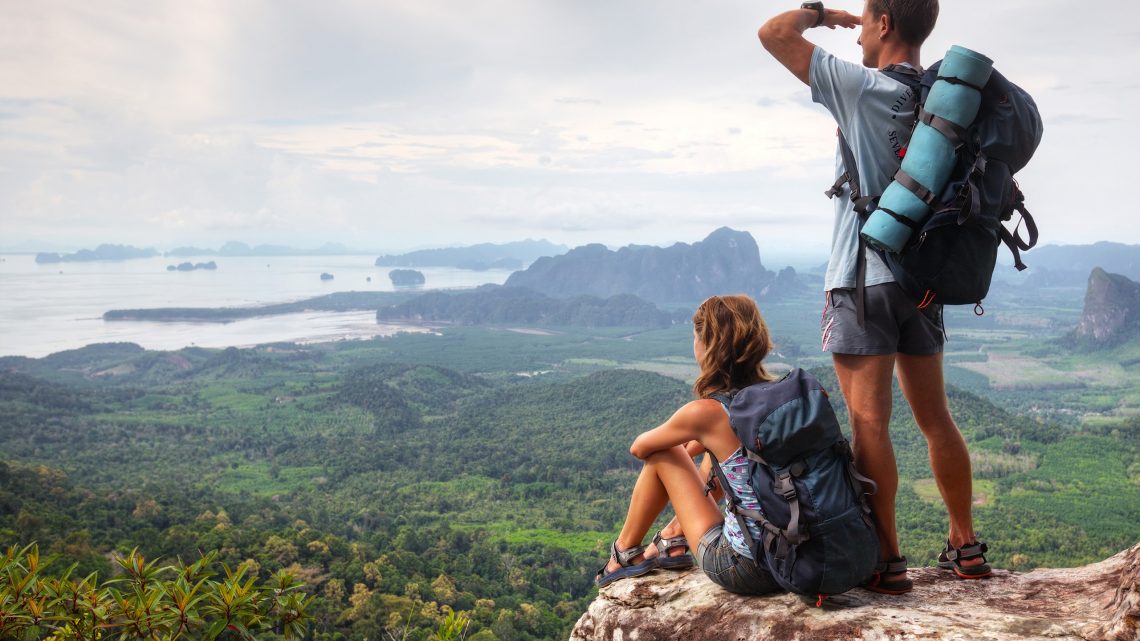
Essential Tips for Successful International Travel Planning
Embarking on a voyage across borders can be one of the most exhilarating experiences of a lifetime. This journey can open doors to diverse cultures, tantalizing cuisines, and breathtaking landscapes, creating memories that last forever. However, a little foresight and preparation can greatly enhance this experience, transforming potential challenges into exciting opportunities.
As you set your sights on new horizons, understanding the intricacies of your venture becomes paramount. From arranging accommodations to navigating local customs, a thoughtful approach can make all the difference. Consider how to optimize your itinerary to relish the full richness of each destination, ensuring that every moment counts.
Whether you are a seasoned globetrotter or a first-time explorer, grasping the fundamentals of a successful journey will elevate your escapade. Embrace this chance to equip yourself with strategies that promote smooth transitions and enjoyable experiences abroad. Remember, the world is vast and waiting to be discovered; all you need is a little guidance to embark on this thrilling quest!
Choosing Your Destination Wisely
Selecting a location for your journey is a crucial step that can greatly influence your experience. The right choice ensures that your escapade aligns with your interests, budget, and time availability. A thoughtful approach to identifying the perfect place can lead to unforgettable moments and a deeper appreciation of diverse cultures.
Understanding Your Interests
Before diving into options, reflect on what excites you the most. Whether it’s stunning landscapes, rich history, or vibrant nightlife, recognizing your passions will streamline the decision-making process. Researching various destinations through blogs, travel guides, and social media can help you discover places that resonate with your personal preferences.
Considering Practical Aspects
Alongside personal interests, pragmatic elements should weigh heavily in your decision. Assess factors such as budgetary constraints, travel restrictions, and climate conditions when narrowing down potential spots. Flexibility in your timing and an awareness of local customs can also enhance your experience, ensuring that your adventure is both enjoyable and respectful. Ultimately, a careful evaluation of these components will lead you to a destination that perfectly aligns with your aspirations.
Budgeting for Your Travel Experience
Establishing a financial framework is crucial when embarking on journeys beyond borders. A well-structured budget helps in maximizing enjoyment while minimizing unexpected costs, ensuring a fulfilling escapade without financial strain.
To create a solid financial plan, consider the following key components:
|
Expense Type |
Estimated Cost |
|---|---|
|
Accommodation |
$100 – $300 per night |
|
Transportation |
$50 – $150 per day |
|
Food |
$30 – $100 per day |
|
Activities |
$20 – $200 per excursion |
|
Souvenirs |
$10 – $100 |
|
Emergency Fund |
10% of total budget |
Allocating resources wisely allows for flexibility and enjoyment throughout the experience. Regularly revising the anticipated costs ensures alignment with actual expenditures, paving the way for a more relaxed venture.
Essential Travel Documents You Need
When embarking on a journey beyond borders, having the right paperwork is crucial to ensure a smooth experience. The various forms of documentation not only facilitate entry into other nations but also provide security and peace of mind throughout your voyage. Understanding what is necessary can significantly enhance your overall enjoyment and reduce potential stress.
Passport: This is the primary identification that grants you the freedom to explore new destinations. Make sure your passport is valid for at least six months beyond your intended return date to avoid any complications.
Visa: Depending on your destination, a visa may be required for entry. It’s important to research the specific requirements of the country you plan to visit and apply accordingly, as regulations can vary widely.
Travel Insurance: Although not a physical document for entry, travel insurance is a vital safeguard against unexpected events such as cancellations or medical emergencies. Having a copy of your insurance policy handy can provide valuable support if needed.
Vaccination Certificate: Some countries may require proof of certain vaccinations before allowing entry. Ensure that you have the necessary documentation to comply with health regulations.
Itinerary: Preparing a detailed itinerary can aid in ensuring you have all required bookings and confirmations at your fingertips. This includes accommodation details, transportation arrangements, and significant activity bookings.
Being well-prepared with the correct documents not only ensures compliance with local laws but also enhances overall enjoyment during your explorations. Always double-check your documentation and keep digital copies as a backup to avoid any last-minute hiccups.
Planning Your Itinerary Effectively
Creating a well-structured agenda is crucial for maximizing the enjoyment of your journey. With a thoughtful approach, you can ensure that you experience the highlights of your destination while also allowing for spontaneity. A balanced itinerary can enhance your relaxation and exploration, making every moment count.
When crafting your agenda, consider the following elements:
|
Aspect |
Description |
|---|---|
|
Prioritize Attractions |
Identify must-see sites and prioritize them based on personal interests and the time available. |
|
Time Management |
Allocate appropriate time for each activity, factoring in travel time between locations, meals, and rest. |
|
Flexibility |
Build in free time for unexpected opportunities or challenges that may arise during the trip. |
|
Research Local Events |
Look into festivals, markets, or events that coincide with your visit to enrich your experience. |
|
Logistics |
Address transportation options, accommodations, and entry requirements well in advance for seamless navigation. |
By considering these factors, you can construct an enriching and adaptable itinerary that caters to your preferences and fosters memorable experiences along the way.
Health and Safety Precautions
When embarking on a journey beyond your borders, it’s crucial to prioritize well-being and security. Taking proactive measures can make a significant difference in ensuring a smooth experience throughout your excursion. Understanding potential risks and implementing protective strategies can help mitigate issues that may arise.
Stay Informed: Before departure, research the destination thoroughly. This includes understanding health advisories, local diseases, and vaccine recommendations. Websites from health organizations and government travel sites are invaluable resources for obtaining accurate information.
Health Insurance: Acquiring comprehensive health coverage is paramount. Ensure your policy includes international provisions and covers medical expenses abroad. Familiarize yourself with the process of finding medical assistance in case of an emergency.
Medication and Supplies: Pack necessary medications, along with prescriptions if needed. Additionally, assemble a basic first-aid kit containing items such as band-aids, antiseptics, and any personal care products you might require.
Stay Hydrated and Eat Wisely: Keep yourself hydrated, especially in hot climates, and practice caution when it comes to food choices. Opt for well-cooked meals and bottled water to minimize the risk of foodborne illnesses.
Emergency Contacts: Always have important contact numbers readily available. This includes local emergency services, your country’s embassy, and healthcare facilities. Store these in your phone and keep a printed copy as well.
Trust Your Instincts: Lastly, listen to your intuition. If a situation feels unsafe, don’t hesitate to remove yourself. Being aware of your surroundings and prioritizing personal safety at all times can contribute significantly to a gratifying trip.
Cultural Considerations and Etiquette
Understanding the social norms and customs of a destination can significantly enhance the experience of any traveler. Engaging with locals in a respectful manner fosters meaningful connections and enriches the journey. Awareness of cultural differences often leads to a more immersive and enjoyable visit.
- Greetings: Various cultures have distinct ways of saying hello. Research the appropriate gestures, whether it’s a handshake, bow, or a simple wave.
- Dress Code: Attire can reflect respect for local traditions. Some regions may require modest clothing, especially in religious sites.
- Dining Etiquette: Table manners can vary widely. Be mindful of customs such as using specific utensils or waiting for the host to begin the meal.
- Personal Space: Proximity during conversations differs globally. Some communities favor more personal space, while others may be comfortable with closeness.
- Tipping Practices: Gratuity norms can vary by country. It’s advisable to learn whether tips are expected or included in the bill.
Moreover, showing genuine interest in the local culture can leave a lasting positive impression. Simple acts, like learning a few words in the native language or being aware of local customs, can open doors and create friendships that enrich the adventure.
Questions and answers: Planning international travel
What are the essential steps to plan an international trip for the first time?
When planning your first international trip, start by researching your travel destinations and checking the visa requirements for each foreign country you want to visit. Make sure your passport expiration date is valid for at least six months beyond your trip dates. It’s also important to notify your bank about your travel plans to avoid any issues with your travel credit card abroad. Don’t forget to buy travel insurance and check for any travel advisories related to your chosen destinations.
How can Google Maps and travel apps help you when traveling internationally?
Google Maps and travel apps are invaluable tools when traveling internationally. Google Maps helps you navigate foreign countries, find local attractions, and estimate travel times between locations. Travel apps can assist with translating languages, converting local currency, and finding the best deals on accommodations and car rentals. Having a reliable SIM card or access to WiFi ensures you can use these apps effectively during your trip abroad.
What should you consider when booking international flights for your trip abroad?
When booking international flights, it’s important to plan ahead to secure the best deals. Use platforms like Google Flights to compare prices and find the most convenient flight routes. Consider the airport location and the availability of rental car services upon arrival. Also, keep in mind the baggage allowance and any extra fees that may apply to your luggage. Booking your flights well in advance is a key part of planning your trip, especially during peak travel seasons.
Why is travel medical insurance crucial when planning an overseas trip?
Travel medical insurance is crucial when planning an overseas trip because it covers medical emergencies that may occur while you’re traveling abroad. Health care costs in a foreign country can be high, and having travel medical insurance ensures you receive the necessary care without incurring significant expenses. It’s also important to check if your policy covers emergency evacuation and any specific activities you plan to do, such as adventure sports.
What are the best tips for traveling internationally on a budget?
Traveling internationally on a budget requires careful trip planning and research. Start by booking flights during off-peak times to get the best deals, and consider staying in budget accommodations like hostels. Using public transportation instead of renting a car can also save money. Additionally, plan your trip to include free or low-cost attractions, and use travel credit cards that offer rewards or discounts on travel-related expenses. Don’t forget to plan ahead for local currency exchanges to avoid high fees.
What are the most important steps to follow when you start planning a trip overseas for the first time?
When you start planning a trip overseas for the first time, it’s crucial to follow a step-by-step guide that includes researching and planning your travel dates, checking travel visa requirements, and ensuring your passport is up to date. Begin by deciding on the trip length and destinations, then go ahead and start booking your flights and accommodations. You’ll want to follow these tips and tricks to make sure your international trip planning goes smoothly.
What should you consider when preparing a checklist for your first trip to Japan?
When preparing a checklist for your first trip to Japan, you’ll want to include items like securing a travel visa (if required), selecting a suitable phone plan for international roaming, and researching local customs and etiquette. Make sure to start planning well in advance to find the best travel deals and consider budget travel options. Additionally, read travel blogs and guides to help you plan day trips and activities during your stay.
How can travel blogs assist in the international trip planning process?
Travel blogs are an excellent resource during the international trip planning process as they offer valuable travel tips, destination reviews, and budget travel advice. If you’ve always wanted to travel to a specific country, reading travel blogs can provide insights into the best time to travel, hidden gems, and tips for traveling abroad. These blogs often include checklists and step-by-step guides that can help you plan your trip more effectively.
Why is getting travel insurance essential when you’re planning an overseas trip?
Getting travel insurance is an essential part of planning an overseas trip because it protects you against unexpected events such as medical emergencies, trip cancellations, and lost luggage. When you’re planning a trip abroad, you’ll find that many countries require proof of travel insurance as part of their necessary travel requirements. It’s always better to be safe and ensure you’re covered for any potential issues that may arise during your travels.
What are some budget travel tips for your first international trip?
For your first international trip, budget travel tips include planning your trip during the off-season to save on flights and accommodations, opting for budget-friendly accommodations like hostels or Airbnb, and using public transportation instead of taxis. You’ll also want to start booking early to secure the best deals. Additionally, consider using a travel credit card that offers rewards or discounts, and make sure to research and plan your trip to avoid unnecessary expenses.








